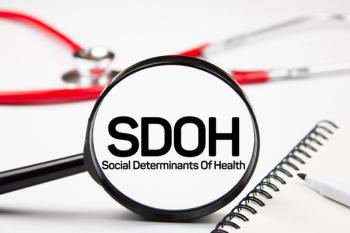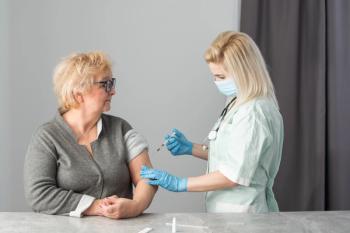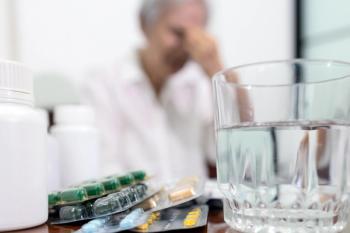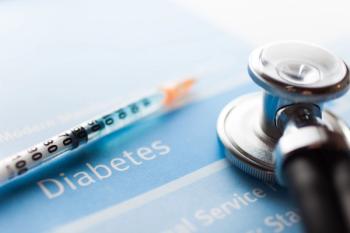
At the NCPA 2025 Annual Convention & Expo, Lucas Morgan, Esq, shareholder with Buchanan Ingersoll & Rooney, joined us to discuss ongoing PBM legislation in the state of Arkansas.

At the NCPA 2025 Annual Convention & Expo, Lucas Morgan, Esq, shareholder with Buchanan Ingersoll & Rooney, joined us to discuss ongoing PBM legislation in the state of Arkansas.

Tara Pfund, PharmD, chief strategy officer with Cascadia Pharmacy Group, discusses the importance of pharmacy businesses to understand evolving and emerging health care technology.

Jennifer Griffin, PharmD, MS, clinical pharmacist at Harps Food Stores, Inc, discusses revenue cycle management and how it has developed within community pharmacy.

Andrew M. Peterson, PharmD, PhD, FCPP, discusses how behavioral health services in community pharmacy help patients receive care impacting all factors of their health and not just medications.

Dae Lee, PharmD, Esq, CPBS, and Lucas Morgan, Esq, shareholders with Buchanan Ingersoll & Rooney, discuss Utah’s pharmacy benefit manager pass-through rebate law.

Tara Pfund, PharmD, chief strategy officer with Cascadia Pharmacy Group, discusses the importance of automation and its emerging role in pharmacy practices.

Before delinking, pharmacy benefit managers were able to tie their fees to significantly high-priced medications, in turn receiving large percentages of compensation rather than flat, fixed fees.

Jennifer Griffin, PharmD, MS, clinical pharmacist at Harps Food Stores, Inc, discusses the basis of having reimbursement pathways in community pharmacy that consistently generate revenue.

Andrew M. Peterson, PharmD, PhD, FCPP, discusses the growing opportunities for pharmacies to support patients’ behavioral health management.

Tara Pfund, PharmD, chief strategy officer with Cascadia Pharmacy Group, discusses her experience developing new technology workflows that drive pharmacy efficiency.

Jennifer Griffin, PharmD, MS, clinical pharmacist at Harps Food Stores, Inc, discusses billing for clinical services and how pharmacies need to prioritize credentialing.

Andrew M. Peterson, PharmD, PhD, FCPP, discusses social determinants of health, their impact on patients, and why pharmacists struggle to address them.

Emlah Tubuo, PharmD, MS, owner of Powell Pharmacy and founder of Emlah Consulting LLC, discusses the overall importance of supplement sales in community pharmacies.

Amaal J. Starling, MD, FAAN, FAHS, and Courtney Hahs, PharmD, discuss the excitement surrounding emerging CGRP-targeted therapies and their novelty within the migraine medication market.

Emlah Tubuo, PharmD, MS, owner of Powell Pharmacy and founder of Emlah Consulting LLC, discusses her approaches to supplement marketing.

Amaal J. Starling, MD, FAAN, FAHS, and Courtney Hahs, PharmD, address the challenges in migraine care and how a lack of access and workforce are creating opportunities for pharmacists.

At the NCPA 2025 Annual Convention & Expo, Jeannie Grubbs, PharmD, manager at Publix Pharmacy, presented on the reasons why pneumococcal vaccine development is an ongoing process.

Emlah Tubuo, PharmD, MS, owner of Powell Pharmacy and founder of Emlah Consulting LLC, discusses how pharmacists’ knowledge of supplements should be increasing as use rises among patients.

Emlah Tubuo, PharmD, MS, owner of Powell Pharmacy and founder of Emlah Consulting LLC, discusses how supplement use and purchasing have risen significantly since the COVID-19 pandemic.

Amaal J. Starling, MD, FAAN, FAHS, and Courtney Hahs, PharmD, discuss the various treatment options available for migraine and how pharmacists can step in to manage patients’ medications.

Amaal J. Starling, MD, FAAN, FAHS, and Courtney Hahs, PharmD, discuss gaps in migraine care and how community pharmacists are improving migraine outcomes like never before.

This year’s event, from October 18-21, 2025, will take place in New Orleans, Louisiana, at the Ernest N. Morial Convention Center.

Check out our coverage of the American Diabetes Association's 85th Scientific Sessions!

Kristen Jones, PharmD, discusses leadership strategies in pharmacy management that prioritize emotional intelligence and communication for enhanced team performance and patient care.

Pharmacy professionals evolve into strategic leaders, mastering emotional intelligence and management skills to navigate complex workplace dynamics and enhance patient care.

Kristen Jones, PharmD, discusses challenging traditional workplace paradigms by emphasizing the human element in pharmaceutical operations.

Kristen Jones, PharmD, discusses pharmacists as leaders at McKesson ideaShare 2025.

This year’s conference is taking place from August 1 to 4 in Cincinnati, Ohio.

Brooklyn Morgan, PharmD, discusses the transformation of pharmacy practice from a regulatory model to a more flexible approach.

Tamara McCants, PharmD, president of NPhA, and Tazche Turner, PharmD, national president of SNPhA, discuss what to expect at this year’s meeting.